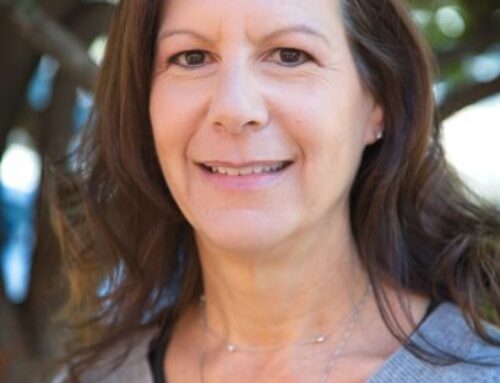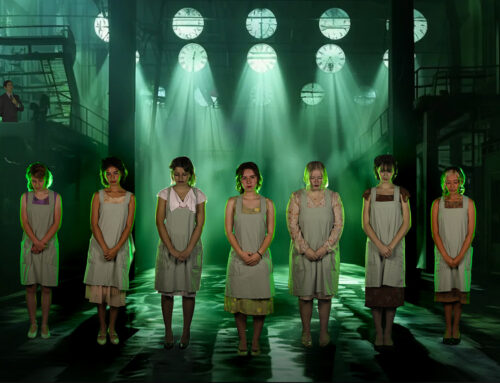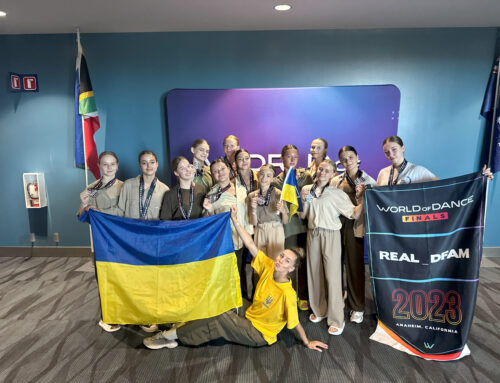Fresh lettuce is grown in high-tech container “farms”
![]()
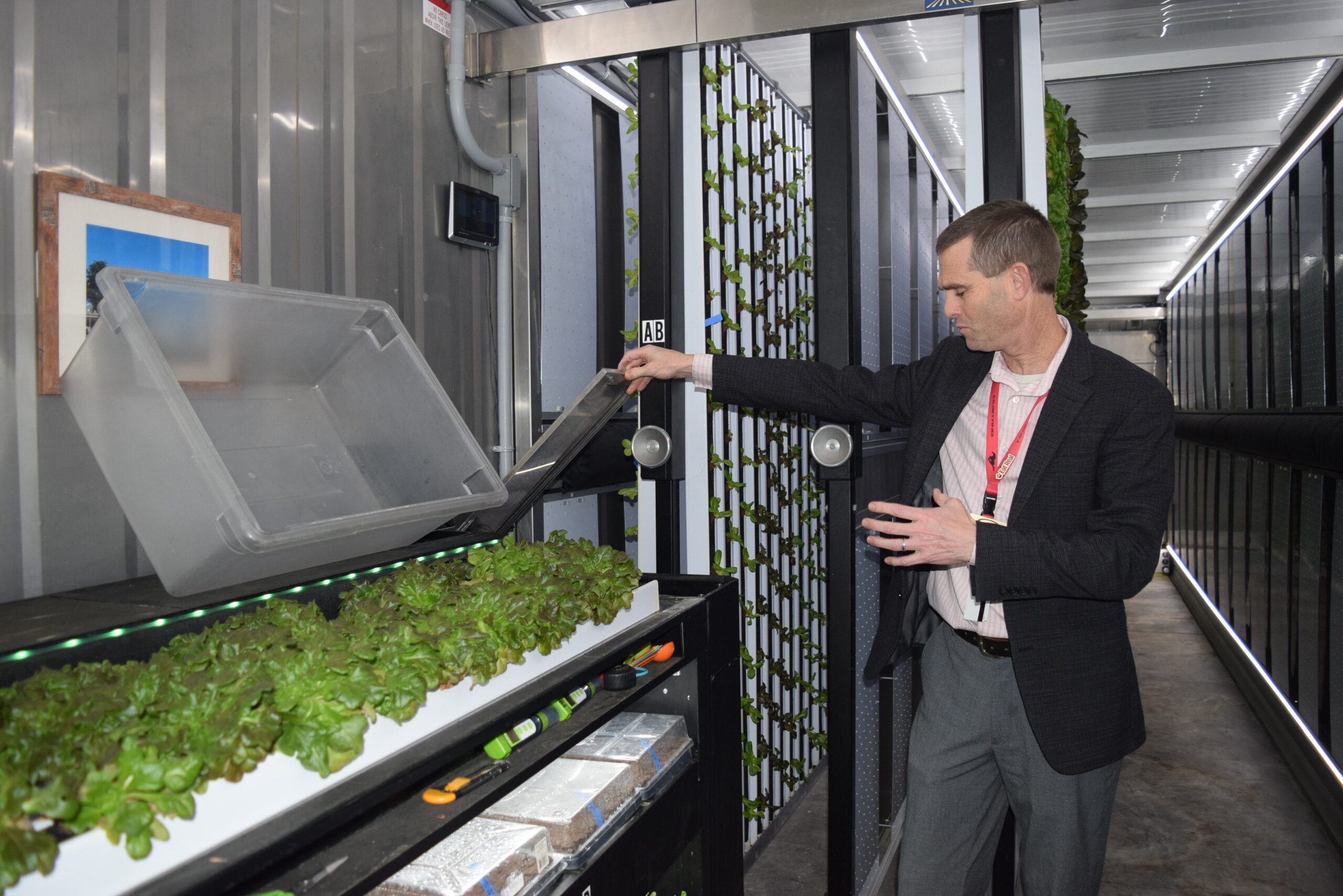
Photo by Kaylee Arca
Michael Jochner examines the seedling station in shipping containers located at Live Oak and Sobrato high school.
By Kaylee Arca
Six years ago, Michael Jochner worked as an executive chef for Google and various exclusive Bay Area restaurants. After years of meticulously building perfect plates with tweezers, he grew tired of serving the rich 1 percent, people who didn’t care about the price of their food bill.
One day he jokingly told his wife, “I want to be a lunch lady.”
A month later, Jochner applied for an open nutrition director position at the Morgan Hill Unified School District. He was soon hired. Since then, Jochner reinvented its nutrition program and focuses on providing tasty and healthy meals for students. Gone are the days of pre-packaged hot school lunches. The professional chef is enhancing student nutrition through new foods, fresh produce, and innovative farming that includes growing lettuce inside shipping containers.
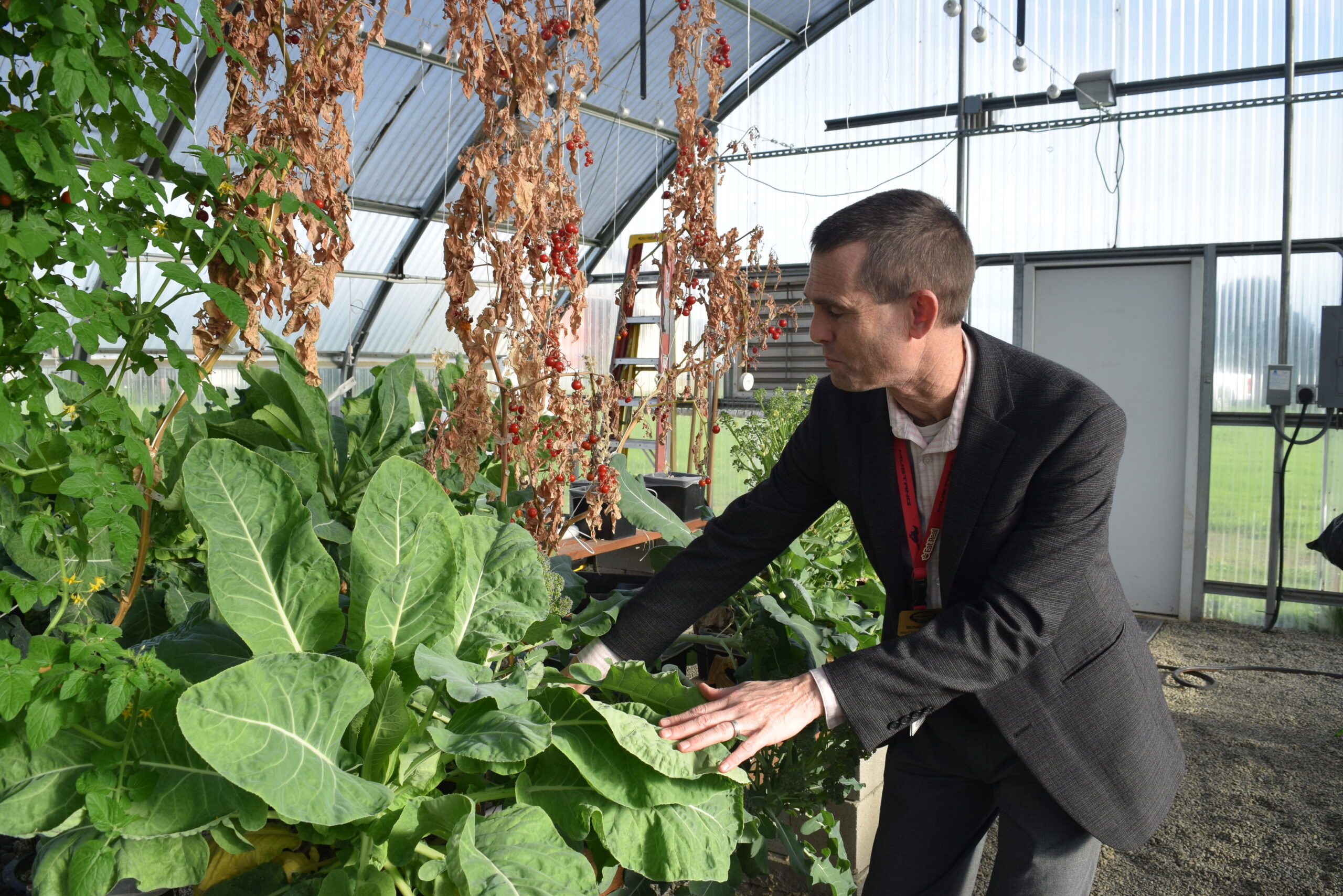
Photo by Kaylee Arca
Jocher inherited 13 kitchens across the district, outfitted to reheat prepackaged meals. Since then, the kitchens have undergone renovations funded by grant money. He boasts that MHUSD’s nutrition program now makes 55 percent of its student meals by scratch. The dishes are prepared with fresh ingredients so there are no preservatives or additives.
With state funding, California students can daily receive a free breakfast and lunch. Jochner has been slowly introducing cultural dishes at cafeteria’s in the schools. He referred to the previous menu as “easy Asian and simple Mexican.”
Now, he’s playing the “long game” with students’ tastebuds.
“It just seems to be like a very long journey I’m on with the kids,” he said. “And I said it when I got hired, that I’m targeting my kindergartners.”
The four-week cycle menu features dishes like Baja fish tacos, hamburgers, vegan tikka masala, and more delicious options. Jochner is already planning to introduce new foods next school year including tasty avocado toast.
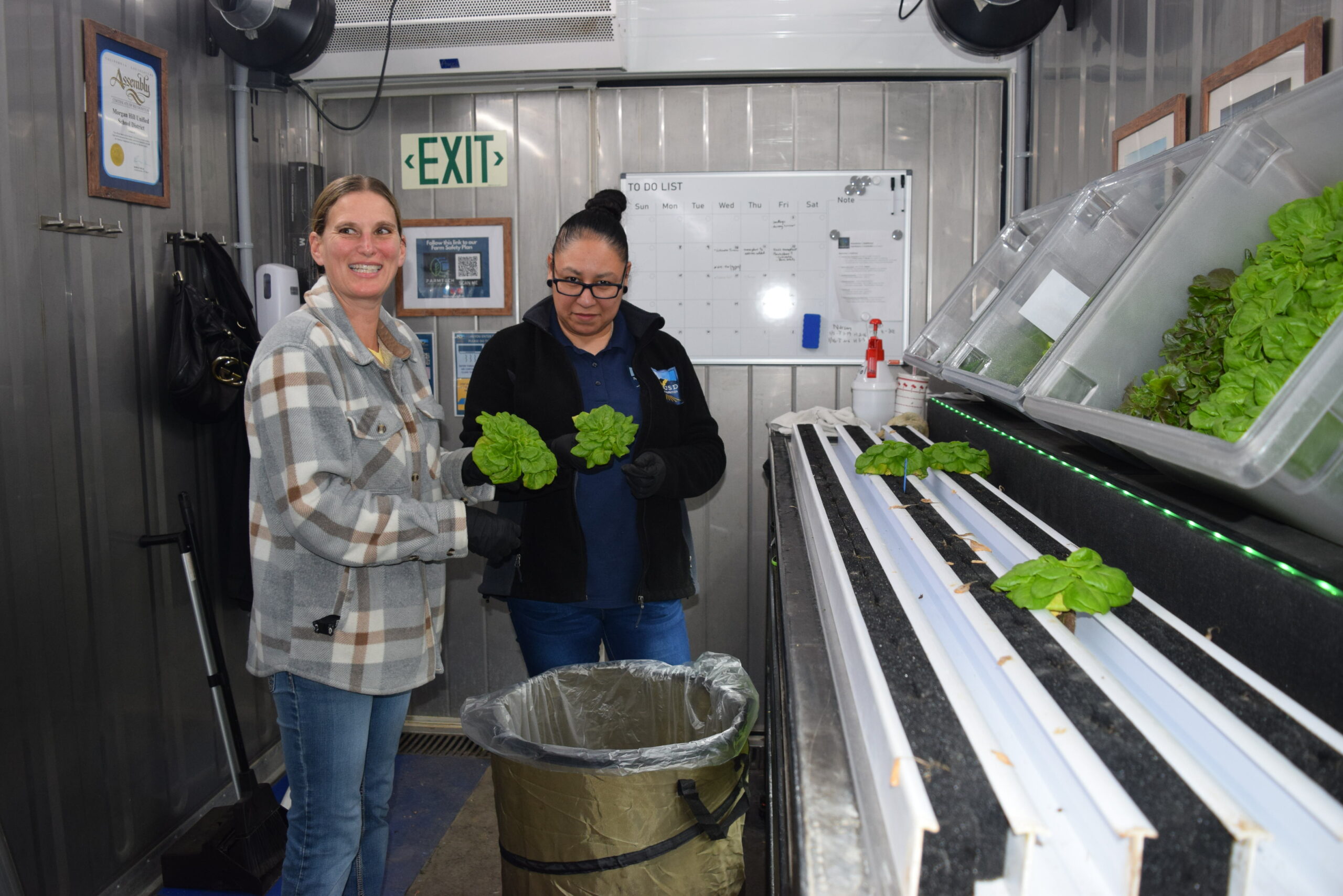
Photo by Kaylee Arca
Jochner’s FarmTECH initiative is uprooting the traditional methods of reheated, prepackaged school lunches. This includes the recent addition of Freight Farms to Ann Sobrato and Live Oak high schools.
Freight Farms are agro-technology shipping containers. The Boston-based company manufactures these compact farms so food can grow quickly in a technology-controlled environment. Jochner calls growing lettuce in a shipping container “sexy.” He and his team control the small environment’s temperature, water, humidity, light, and more from a computer tablet.
MHUSD uses its Freight Farms to grow a variety of lettuce. At any time, 16,000 lettuce — 8,000 seedlings and 8,000 heads — grow in the Freight Farm. Once the seedlings are big enough, the team processes the heads and hangs them from large, movable walls in the farm.
“There’s some Bluetooth speakers, and I play music in here,” he said. “We have an ongoing debate about what music the lettuce likes best.”
The shipping container only needs a 50-feet by-10-feet plot of land and five gallons of water a day to grow the same amount of produce equivalent to 2.5 acres of flat row crops. The process from planting to producing salad takes about eight weeks. When the lettuce is ready, each head is shipped to the schools with the root attached, Jochner said.
“Our weekly harvest average is between 425 to 450 pounds of lettuce,” he said. “If you think about a lettuce head, they generally weigh about three to five ounces.”
The lunch ladies only remove the lettuce’s root after delivery. Students end up eating “hyper-local” fresh lettuce.
In addition to experimenting with high-tech agriculture on campuses, Jochner created partnerships with local farms to serve the freshest food with the help of a small army of lunch ladies.
“To service a school district is incredibly hard,” he said.
MHUSD used to give students pre-sliced apples and baby carrots wrapped in plastic. Now, the district buys local produce in bulk and prepares it daily in the on-site kitchens.
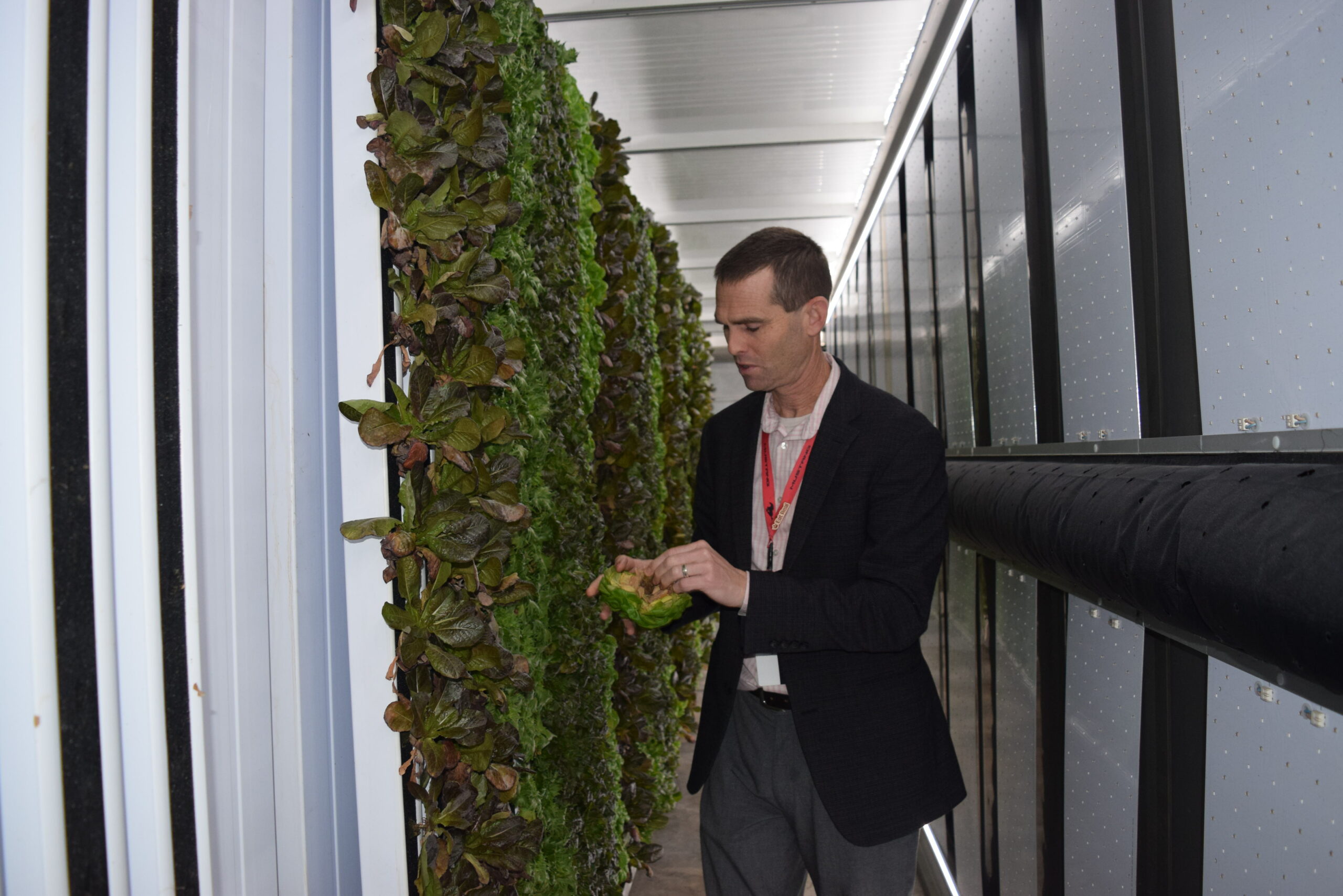
Photo by Kaylee Arca
Jochner also created a bulk milk partnership with Straus Family Creamery. Straus is one of two local organic milk producers in California. The other is Clover. He chose to work with Straus because it’s a “premier program.”
“Straus raises happy, healthy cows,” he said. “It’s probably the most expensive milk you can buy.”
Before implementing the bulk milk program, MHUSD schools threw away hundreds of thousands of milk cartons a year into landfills. It also dumped 30 to 40 pounds of unused milk every day at each elementary school. Now, the schools have milk dispensers and biodegradable cups. This almost entirely eliminates milk waste because students take only the amount that they want.
“No other district has a milk program like us,” he said.
The schools also serve local regenerative beef for burgers and hot-dogs from Richards Ranch. This means the ranch sequesters and captures more methane and carbon than it produces.
“Our kids are getting the absolute best beef I can find,” Jochner said. “We serve the best hamburger you can buy. I challenge anyone to go out to Whole Foods, Safeway, Walmart, Lucky’s, and try to find certified USDA organic beef from a regen farm. You probably won’t find it.”
 Since Jochner started, the nutrition program has also eliminated single-use plastic. All cutlery is biodegradable and the napkins are made from recycled materials.
Since Jochner started, the nutrition program has also eliminated single-use plastic. All cutlery is biodegradable and the napkins are made from recycled materials.
MHUSD used to sell more than 170,000 plastic bottles of water per year. The schools started selling Path Water. The Path Water bottles are made from aluminum and are reusable.
“There’s no stone left unturned for this program,” Jochner said. “Because I came from high end, I know high-end food and farmers.”
“It’s a challenging path to move back toward scratch-cooked food when your entire structure is built around heating food up and serving food that’s wrapped in plastic,” he said.
Jochner feels passionate about supporting and fueling all MHUSD students through food.
“Maybe mom works two jobs,” he said. “Maybe McDonald’s is the best meal she can do for dinner. But know I got you for breakfast and lunch.”
Kaylee Arca is a Morgan Hill-based freelance reporter.



